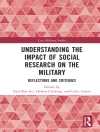A real imports of capital and intermediate goods declinedsharply for highlyindebted countries in the 1980s, theseeconomies were faced with the need tosubstitute previouslyimported factors of production with domestic capital andlabor. The study empirically analyzes the degree of importdependence of twelve developing countries. Estimates of theshort-run elasticity of substitution characterize bothimported capital and intermediate goods to behave likecomplements in the production process in the developingcountries. Long-run substitution elasticites differconsiderably among the group of economies, especially forimported machinery and equipment. The results indicate thatinward-oriented strategies have not achieved the aim ofreducing the import dependence of the developing economies. In order to visualize theimplications of the differingdegree of import dependence, a partial equilibriumeconometric model is used to analyze the reaction of thetrade account on external shocks and domestic policies in Columbia and Ecuador. Simulations show that the dependenceon imported production means can transform an "adjustmentwith growth" of the external account intoan "adjustment orgrowth" controversy.
Jesko Hentschel
Imports and Growth in Highly Indebted Countries [PDF ebook]
An Empirical Study
Imports and Growth in Highly Indebted Countries [PDF ebook]
An Empirical Study
यह ईबुक खरीदें और 1 और मुफ़्त पाएं!
भाषा अंग्रेज़ी ● स्वरूप PDF ● ISBN 9783642467707 ● प्रकाशक Springer Berlin Heidelberg ● प्रकाशित 2012 ● डाउनलोड करने योग्य 3 बार ● मुद्रा EUR ● आईडी 6324476 ● कॉपी सुरक्षा Adobe DRM
एक DRM सक्षम ईबुक रीडर की आवश्यकता है












